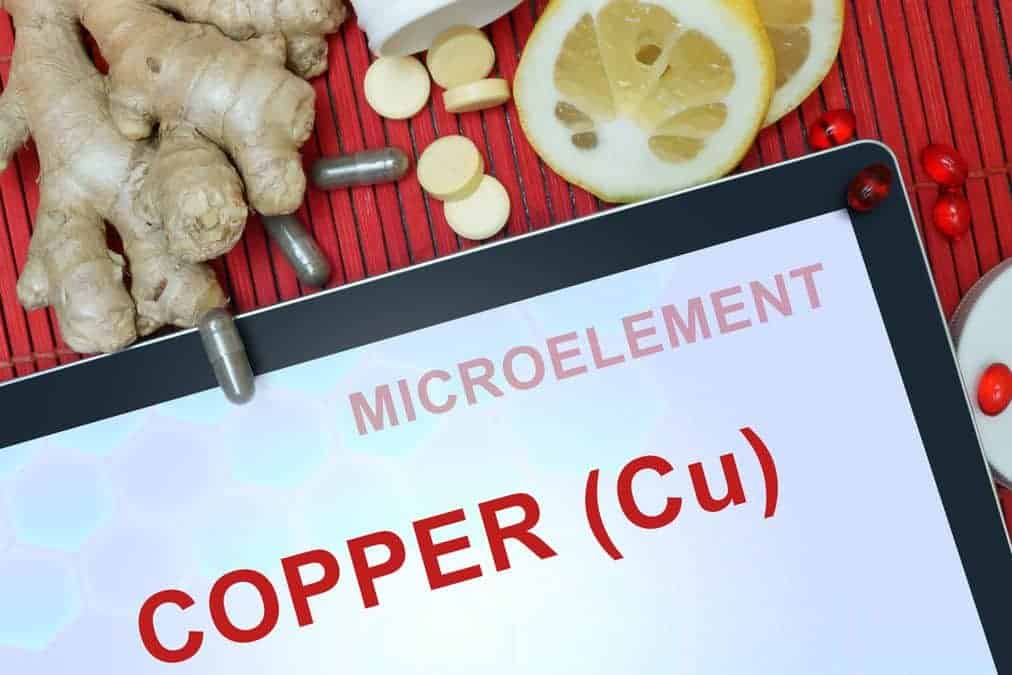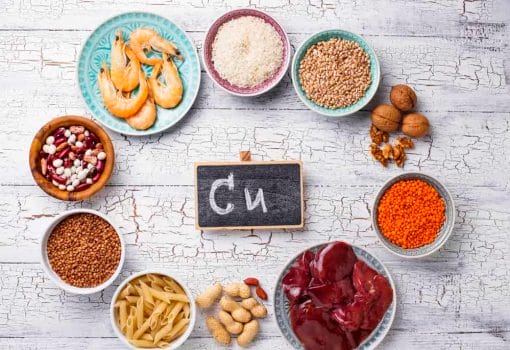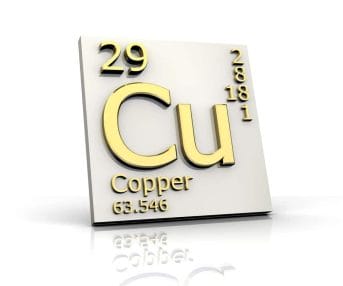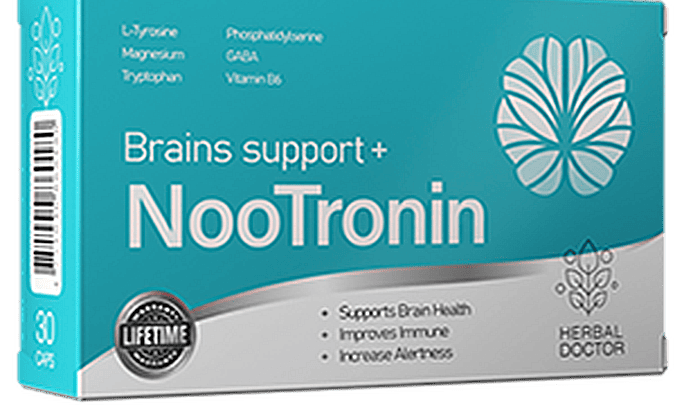
Copper – another trace element essential for health
Another trace element, i.e. one that occurs in the human body in small amounts, averaging 75 to 150 mg, is copper. Despite the fact that we have little of it, we can’t do without it, such is its enormous importance for our health. Its medicinal properties are extremely broad, practically the whole body needs it, which is why it is worth learning a little more about it.
Contents
Copper – what is this element?
It is an element belonging to the so-called transition metals, having in the Periodic Table the symbol Cu. Interestingly, its name comes from the island of Cyprus, where there were large deposits of this metal in ancient times. Copper’s characteristics are its color and luster and its relatively rare occurrence, and it is found all over the world. It was known and used thousands of years ago, its alloy with tin is called bronze, and weapons and various everyday objects were made from it. Nowadays, copper is also used in industry, primarily in electronics, and the beneficial effects of this element on health are also appreciated.
What natural sources of copper are worth using?

Since copper is a trace element, we not only need to control its level in the body, but also immediately supplement any detected deficiency. This can be done with the help of properly selected dietary supplements such as pills, but it is better to rely on natural sources of copper in food. This will protect us from possible side effects resulting from the burdening of the digestive system with an excess of pills. We can find quite a lot of it in many foods we eat every day. It is certainly possible to compose an interesting and tasty menu, with such ingredients, full of copper, as:
- pulses, beans, chickpeas, lentils, shelled peas, soybeans;
- groats, buckwheat, millet, barley, oat, pearl, wheat, rice;
- bran, oat and wheat;
- nuts, pistachios, walnuts and peanuts;
- almonds;
- dark bread made from rye flour;
- corn flour products;
- fresh spices, basil, garlic, ginger, cilantro;
- fresh vegetables, eggplant, broccoli, beets, onions, white and Chinese cabbage, cucumber, parsley, peppers, tomatoes, spinach, potatoes;
- fruits, avocados, bananas, dried prunes, dried figs;
- chicken egg yolks;
- dairy products, yogurt, kefir, yellow and cottage cheese, powdered milk;
- meat, beef and lamb;
- offal, liver and kidney;
- seafood;
- cocoa and dark chocolate.
How much is the daily recommended copper intake?
Although it’s really hard to overdose on copper, although it does sometimes happen, it’s a good idea to take it in safe, well-defined doses. As with many other elements, the recommended daily intake depends on age and is for specific groups:
- infants – 0.2 mg;
- children from 1 to 6 years of age – 0.3 mg;
- children from 7 to 9 years of age – 0.7 mg;
- children and adolescents from 10 to 18 years of age – 0.9 mg;
- adults, women and men – 0.9 mg.
- pregnant women – 1 mg.
Copper – what are its health properties worth highlighting?
The importance of maintaining proper amounts of trace elements, including copper, for health should not be underestimated. It can have serious consequences, accelerate the development of many diseases or hinder the treatment of existing ones. Copper has a positive effect on virtually every aspect of our health, and among its many healing properties, it is worth mentioning the positive effect on:
Strengthening weakened immunity
A functioning immune system is our natural barrier against infections or diseases of various origins, most often bacterial or viral. We can be threatened not only by the seasonal cold, but also by the flu or more serious diseases, often very difficult to treat. Providing the body with daily recommended doses of copper perceptibly increases resistance to many pathogens. We will not be intimidated by viruses, bacteria, fungi and reactive oxygen species, or free radicals, the cause of cancer and faster aging of the body.
Support of the skeletal system
Copper, along with calcium or potassium, is one of the elements necessary for long term full bone health. By taking supplements that have it in their composition, or by following a proper diet, you can reduce the risk of osteoporosis, prevent dangerous demineralization and loss of bone mass. Copper is also responsible for the proper development of a strong skeletal system in infants.
Regulation of iron absorption and assimilation
Iron is another trace element important for many processes in the human body, as an example is the prevention of anemia. However, few people realize that iron levels in the body depend on proper levels of copper, which has a direct effect on:
- iron metabolism, its more efficient absorption and assimilation;
- improving the processes of iron release from tissues;
- blocking the release of too much of it into the blood;
- proper binding of iron molecules and their transport into cells.
Cardiovascular health
Regular and compliant copper supplementation is also extremely important for cardiovascular health and performance. It is an important part of prevention to protect against heart attacks, strokes, atherosclerosis and hypertension. Proper amounts of copper help strengthen blood vessel walls and the heart muscle itself. At the same time, it unclogs clogged arteries, preventing life-threatening blockages and clots from forming in them.
Efficiency of the brain and nervous system
Another important effect of copper supplementation is the improvement of brain and overall nervous system performance, especially when combined with vitamin B. Cognitive functions, the ability to learn, associate facts and easily absorb large amounts of new information are also enhanced. Research is being conducted on the effectiveness of copper preparations in relieving symptoms of stress and other nervous tensions, and even depression.
Skin health
Copper is also used in cosmetics and skin care preparations. The element, like vitamin C, participates in the synthesis of collagen, the material that builds connective tissue, including skin, and elastin. Copper has antibacterial and antifungal properties, so it works well in treating skin diseases of this nature, such as acne or ringworm. It restores the skin’s firmness and elasticity, increases its resistance to mechanical damage, accelerates wound healing, makes it more resistant to adverse weather conditions, frost, moisture and UV radiation.
What are the causes and effects of copper excess and deficiency?
As you can see from the above examples, properly supplemented copper can significantly improve health. However, it is necessary to adhere to the recommended dosage, if this is not taken care of, there are two health-threatening situations:
Excessive copper

It happens rarely, only when it is supplied in really huge amounts or when the management of this element is disturbed and too much is deposited. Characteristic symptoms of excess copper in the body are:
- digestive complaints, vomiting, nausea, diarrhea;
- abdominal pain;
- headaches and dizziness;
- a constant feeling of fatigue and weakness;
- heart and liver disorders.
Copper deficiency
This situation happens more often and poses a much more serious threat to health, in extreme cases of copper deficiency even life. The cause is, first of all, an improper diet, poor in products containing this very element. Another cause may be problems with its absorption and assimilation, and our concern should be aroused by:
- weakening of the body’s immunity;
- simultaneous iron deficiency;
- increased risk of kidney, heart and liver diseases;
- impaired concentration;
- difficulty falling asleep and sleeping, which can lead to insomnia;
- hypertension;
- anemia;
- blurred vision;
- feeling of fatigue;
- muscle numbness;
- seizures;
- difficulty with gait stability.
It is also worth remembering that many factors can cause copper to be flushed out of the body or hinder its absorption. The amount of this element decreases with high LDL cholesterol levels and in patients with hypertension. Copper uptake and absorption are reduced by excess zinc, phosphorus, calcium and dietary fiber.
Sources:
- https://www.healthline.com/health/copper-deficiency
- https://www.healthline.com/nutrition/copper-deficiency-symptoms
- https://www.healthline.com/health/colloidal-copper
- https://www.webmd.com/vitamins-and-supplements/copper-your-health
- https://www.webmd.com/diet/foods-high-in-copper



